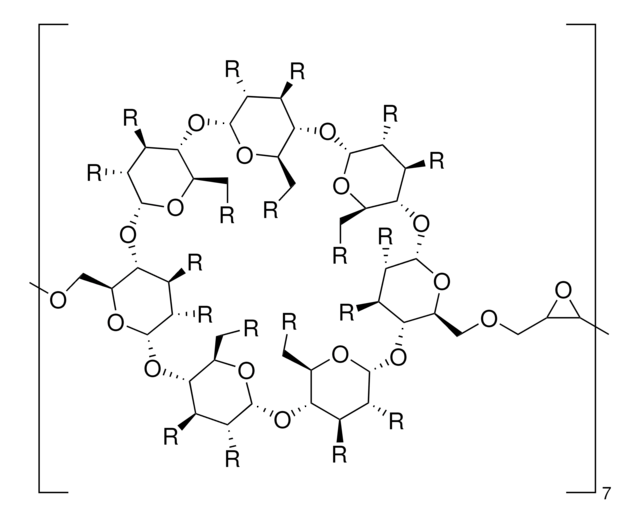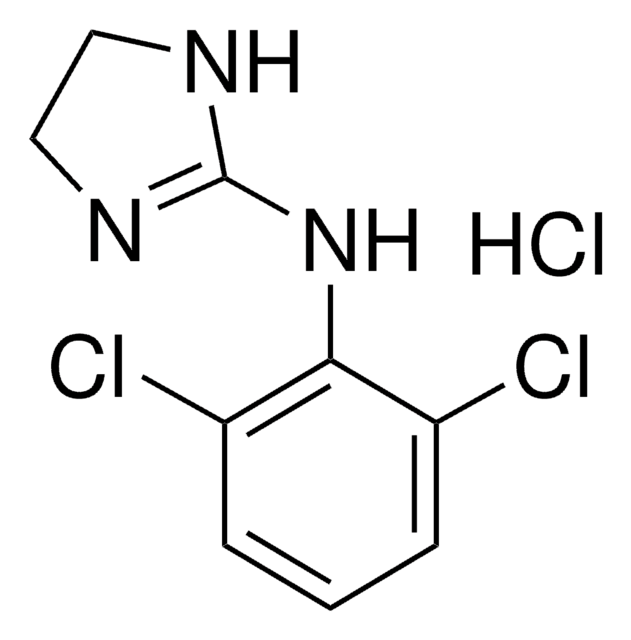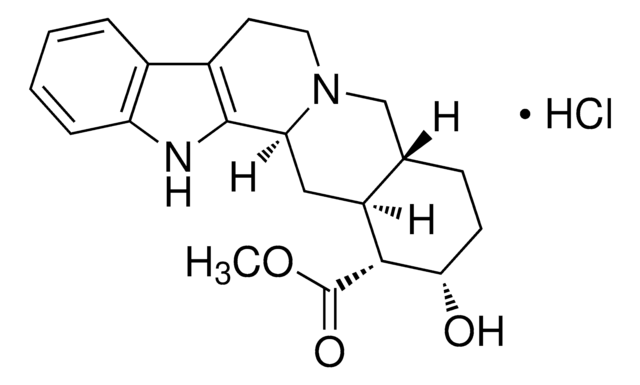U104
UK 14,304
Synonym(s):
5-Bromo-N-(2-imidazolin-2-yl)-6-quinoxalinamine, 5-Bromo-N-(4,5-dihydro-1H-imidazol-2-yl)-6-quinoxalinamine, Brimonidine
About This Item
Recommended Products
Quality Level
solubility
45% (w/v) aq 2-hydroxypropyl-β-cyclodextrin: <0.8 mg/mL
DMSO: >6.5 mg/mL
ethanol: <8 mg/mL (warm)
H2O: insoluble
SMILES string
Brc1c(NC2=NCCN2)ccc3nccnc13
InChI
1S/C11H10BrN5/c12-9-7(17-11-15-5-6-16-11)1-2-8-10(9)14-4-3-13-8/h1-4H,5-6H2,(H2,15,16,17)
InChI key
XYLJNLCSTIOKRM-UHFFFAOYSA-N
Gene Information
human ... ADRA1A(148) , ADRA2A(150) , ADRA2B(151) , ADRA2C(152)
Looking for similar products? Visit Product Comparison Guide
Application
Biochem/physiol Actions
Features and Benefits
Preparation Note
Signal Word
Danger
Hazard Statements
Precautionary Statements
Hazard Classifications
Acute Tox. 3 Oral
Storage Class Code
6.1C - Combustible acute toxic Cat.3 / toxic compounds or compounds which causing chronic effects
WGK
WGK 1
Flash Point(F)
Not applicable
Flash Point(C)
Not applicable
Certificates of Analysis (COA)
Search for Certificates of Analysis (COA) by entering the products Lot/Batch Number. Lot and Batch Numbers can be found on a product’s label following the words ‘Lot’ or ‘Batch’.
Already Own This Product?
Find documentation for the products that you have recently purchased in the Document Library.
Customers Also Viewed
Articles
Learn about alpha-2 adrenoceptor and its subtypes, mediated responses, and applications of agonists. Included is a list of available products and a comparison table.
Our team of scientists has experience in all areas of research including Life Science, Material Science, Chemical Synthesis, Chromatography, Analytical and many others.
Contact Technical Service















